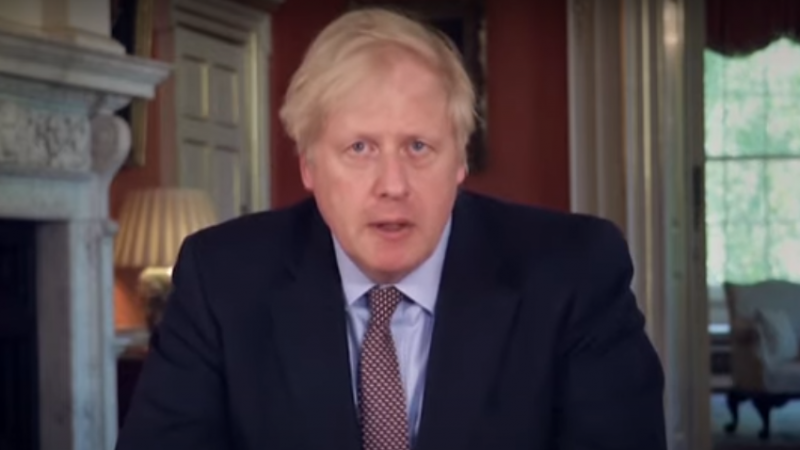'Johnson attempting to directly and publicly undermine Scottish autonomy would not play well in his favour.'

Derek McArthur is a writer and independence campaigner.
No one north of the border was surprised that Boris Johnson had called devolution a ‘disaster’ in a call to MPs last year. Now Dominic Cummings has confirmed that Johnson not only feels devolution was a ‘disaster’ but that he would reverse it if he could get away with it.
Given the UK government’s approach to devolution, are there signs of a protracted campaign to upend Scotland’s autonomy?
Scotland was causing headaches for Johnson when he made his initial comment – Scottish independence had been gradually gaining ground in the polls throughout the year, with a high of 58% by the time the year ended. While support has declined to around 50/50, it has become obvious that support can easily fluctuate, creating an unwanted worry for the Westminster establishment.
During this period of unionist nail-biting, it was revealed that Michael Gove used an emergency contract given to Public First for pandemic research and directed them to commission polls on ‘attitudes to the UK Union’. Gove denied the accusation, distancing himself from the decision-making.
The subsequent distance illustrates how UK influence of Scottish constitutional affairs will be a quiet event, puppeteered from backroom discussions and sleight-of-hand tricks. If the Tory government were to put an honest case forward that Scotland’s autonomy is best left in their hands, they would run out of arguments incredibly fast.
When asked by a journalist on Monday whether Johnson was a unionist or an English nationalist, Cummings commented on his Substack that he was an ‘unthinking unionist’ that would ‘like to reverse’ devolution but ‘won’t dare try’.
Johnson attempting to directly and publicly undermine Scottish autonomy would not play well in his favour. There is little political hunger to reverse the Scotland Act, and even then, the only way to constitutionally abolish it would be through referendum. The Abolish the Scottish Parliament Party failed to crack 0.3% of the vote in any region during the 2021 Holyrood election, cementing the idea as a political dud.
But just because the idea is anathema to a Scottish public doesn’t necessarily mean that restrictions to Scotland’s autonomy won’t be pushed through the backdoor.
With Brexit empowering the Tory government, the tools have been provided to reshape constitutional matters without popular consent. Members of the government have made their stance clear. Michael Gove said that the UK constitution will be ‘modernised’ to be ‘fit for purpose’.
Jacob Rees-Mogg went further, remarking that Labour’s ‘constitutional tinkering’ must be undone and that it has ‘weakened our parliament and helped to divide the United Kingdom’. All indications are that the Tory government do not see the value in devolution and will only maintain it for appearances.
Not that they will stay quiet when it’s politically advantageous. Aberdeen Council voted in December 2020 to bypass the Scottish Parliament and ask Westminster directly for funding. Instead of viewing this as stepping on the toes of Scotland’s limited financial sovereignty, Jacob Rees-Mogg made the point that the council were driven to this through a rejection of the ‘left-wing’ SNP. It was not a constitutional matter that reflected the wider issue of Scotland’s financial system but something that could be batted away through partisan jeering.
As Brexit consolidates the UK government’s power, it’s no surprise that centralisation is the optimal goal. Relinquishing more control to the Scottish Parliament and Scottish institutions would play into the hands of pro-independence supporters and make people aware of the possibilities that full home rule would allow. It’s very much the case that this Tory government would rather fall on the sword of independence than decentralise their power. Both sides of the argument have made it a yes or no question, with little wiggle room on either side.
Boris Johnson will not allow any decision that will loosen his grip. The survival of his government depends on it, as he realises that allowing the nagging Scots to secede from the union will be the end of his prime ministership.
But the argument is not on his side, and publicly the only plan mustered so far is to irritate the Scottish and Welsh with Union Jacks plastered on various government buildings. As with everything else associated with this government, we must read between the lines. In the shadows of Westminster, the real truth lies.
To reach hundreds of thousands of new readers and to make the biggest impact we can in the next general election, we need to grow our donor base substantially.
That's why in 2024, we are seeking to generate 150 additional regular donors to support Left Foot Forward's work.
We still need another 124 people to donate to hit the target. You can help. Donate today.



